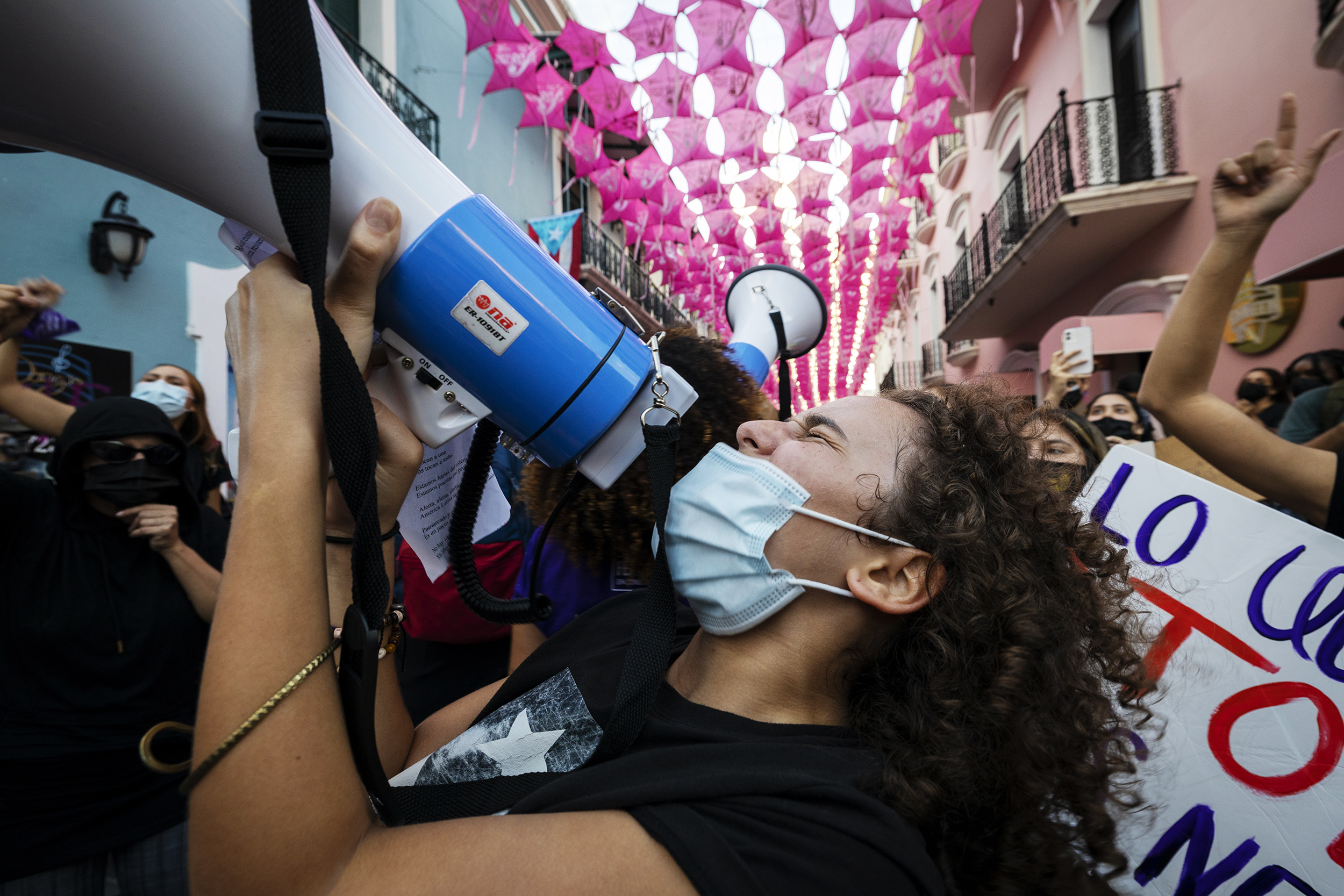
Puerto Rico courts face down the greater issue of gender violence on the island
More than 81 women were victims of femicide in the last year, according to data from Observatorio de Equidad de Género.
In late March, Andrea Ruiz virtually stood before a judge in Puerto Rico to testify about her ex-boyfriend’s terrifying pattern of emotional abuse and persecution. She spoke in great detail about how this man, Miguel Ocasio, stalked and harassed her, and threatened to post intimate photos of her on social media.
During the hearing, Ruiz filed a complaint against Ocasio, under the island’s domestic violence intervention and prevention law, pleading for his arrest after courts denied her petition for a restraining order against him.
At the time, the judge found “no cause” for arrest. But a month after the hearing, Ocasio confessed to police that he killed Ruiz after her burned body was found on the side of a road on April 28.
Her brutal murder has changed the way Justice is pursued in Puerto Rico. There was no prosecutor present when Andrea Ruiz Costa went before a judge for a probable cause hearing asking the judge to jail her ex-boyfriend because she feared for her safety amid alleged threats by him pic.twitter.com/MzCaCvDRKN
— David Begnaud (@DavidBegnaud) May 5, 2021
Ocasio was charged with first-degree murder and destruction of evidence, but he took his own life while in prison earlier this month.
A new investigation is now aiming to bring awareness to how Puerto Rican courts failed to protect Ruiz and other women whose lives were cut short by gender-related violence.
More than 81 women have become victims of femicide on the island since last year, according to the civil rights coalition, Observatorio de Equidad de Género.
Estos fueron algunos de los hallazgos que el Grupo de Trabajo en Casos de Feminicidio de la Administración de Tribunales incluyó en su informe preliminar... Todas las instancias descritas fueron experimentadas por mujeres que luego fueron asesinadas por sus parejas o exparejas. https://t.co/ucFuqWV7sd
— @ObservatorioEquidadGeneroPR (@genero_pr) August 13, 2021
During a press conference on Thursday, the presiding judge of Puerto Rico’s Supreme Court, Maite Oronoz, said in Spanish that the number of femicides is significant and unacceptable.
“That is a number greater than countries that have 20 times our population. So, of course, we have to do more," Oronoz said.
The task force that conducted the probe was responsible for examining the “judicial, administrative and operational processes related to cases of gender-based violence.” The Supreme Court established the task force in May after seven femicides in April made it the deadliest month for women so far in 2021.
According to the report, which was obtained by NBC News, courts were not involved in 91.3% of the gender-based violences cases that resulted in a femicide. For Oronoz, this discovery is the most alarming.
"If, in Puerto Rico, women and men are dying from gender violence, we have a serious problem. That is why the judiciary constantly evaluates itself... to do better,” she said.
Part of the 110-page report focused specifically on an analysis of seven femicides in which courts got involved, including Ruiz’s case.
Oronoz told NBC News that the report does not explicitly identify the victims by name, but using one’s intuition, the reader is able to recognize them based on how the circumstances around the case are outlined.
RELATED CONTENT
"The purpose of the report is not to look into how each judge managed each case, but to give us the tools to know which practices are not working," Oronoz said.
While the report does not inspect specific judges over the way they handled certain cases, the task force reported that the judges involved in all seven cases did not perform well when it came to assessing the presence of “lethality indicators.”
Examples of lethality indicators that should be “red flags” in the women’s testimonies include: a previous history of abuse, increased severity of abuse over a period of time, or accessibility to weapons.
We stand with the women & collectives of Puerto Rico that are organizing & mobilizing against the widespread femicide that has STILL gone unchecked by the government and local courts despite the state of emergency declared in January.#VivasNosQueremos #ConstruyamosOtraVida pic.twitter.com/6RVbfy9sE0
— Mijente (@ConMijente) May 6, 2021
The report stated that stalking was the most common lethality indicator present in the testimonies of the victims or those petitioning for a protection order.
In these cases, the judges did not embrace the “Manual of Protection Orders in Situations of Domestic Violence,” which provides guidance on the process of the hearing, and on the assessment of lethality, and the seriousness of the domestic violence.
One of the task force’s main recommendations calls on the court system to give specific instructions on how judges should use the manual, particularly when evaluating risk factors to measure or anticipate the potential danger a victim is facing.
It also suggests learning how to “craft solutions” that result in the proper enforcement of the final order.
"The task force views this manual as a good resource that judges should continuously be encouraged to use. Even though it is considered a good resource, it is now being updated since the laws on domestic violence have changed," Oronoz told NBC News after the press conference.
The task force is set to submit their final report with recommendations on Jan. 31 of next year. Meanwhile, the Puerto Rico Supreme Court is adopting some of the recommendations around improving virtual court hearings.
“For me, this is still a work in progress,” Oronoz said. “I see the report we released today as a document that remains alive.”










LEAVE A COMMENT: